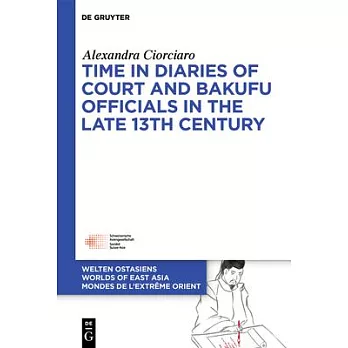Human existence is fundamentally defined by time. Throughout history and across cultures, societies have negotiated time in various ways. This monograph studies temporality as it emerges from diaries produced by government officials during the late thirteenth century in Japan, thereby contributing a perspective gleaned from non-literary texts to the study of time in the social sphere of noble elites in the Kamakura period. In synthesising different approaches to the study of time, it analyses various aspects of time to obtain a comprehensive picture of how time is expressed in these diaries, scrutinise the time practices that they disclose, and reflect on related conceptualisations and evaluations of time.
The monograph argues that we may discern a plurality of coexisting modes of time and that certain aspects and concerns took precedence over others in different situations depending on the symbolic forms that dominated them. As part of the ’Time in Medieval Japan’ (TIMEJ) research project of the University of Zurich, this research aims to contribute to a more nuanced understanding of medieval Japan as multi-faceted society with diverse approaches to time.



 天天爆殺
天天爆殺  今日66折
今日66折 




























 博客來
博客來 博客來
博客來 博客來
博客來 博客來
博客來 博客來
博客來